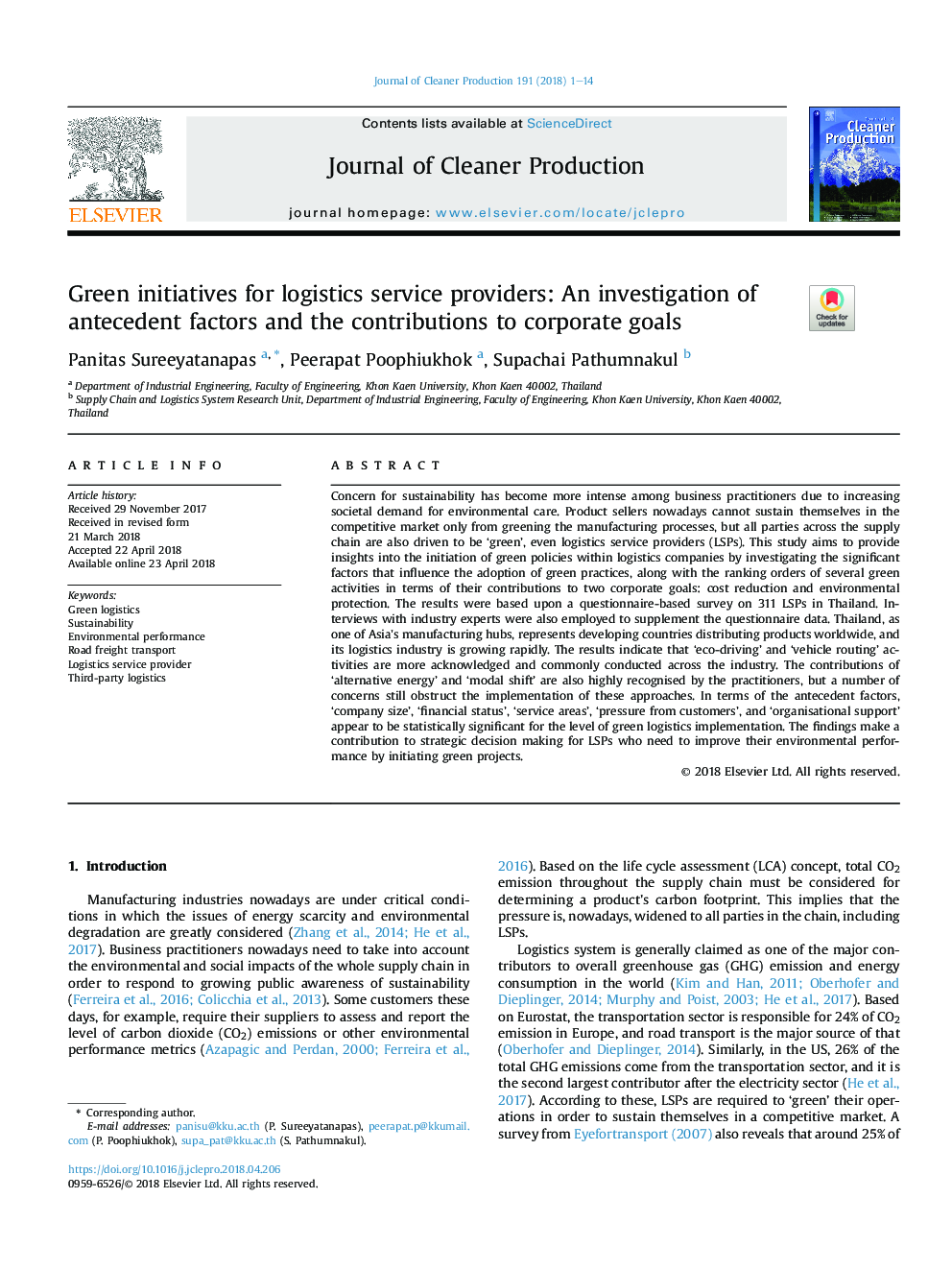| Article ID | Journal | Published Year | Pages | File Type |
|---|---|---|---|---|
| 8094740 | Journal of Cleaner Production | 2018 | 14 Pages |
Abstract
Concern for sustainability has become more intense among business practitioners due to increasing societal demand for environmental care. Product sellers nowadays cannot sustain themselves in the competitive market only from greening the manufacturing processes, but all parties across the supply chain are also driven to be 'green', even logistics service providers (LSPs). This study aims to provide insights into the initiation of green policies within logistics companies by investigating the significant factors that influence the adoption of green practices, along with the ranking orders of several green activities in terms of their contributions to two corporate goals: cost reduction and environmental protection. The results were based upon a questionnaire-based survey on 311 LSPs in Thailand. Interviews with industry experts were also employed to supplement the questionnaire data. Thailand, as one of Asia's manufacturing hubs, represents developing countries distributing products worldwide, and its logistics industry is growing rapidly. The results indicate that 'eco-driving' and 'vehicle routing' activities are more acknowledged and commonly conducted across the industry. The contributions of 'alternative energy' and 'modal shift' are also highly recognised by the practitioners, but a number of concerns still obstruct the implementation of these approaches. In terms of the antecedent factors, 'company size', 'financial status', 'service areas', 'pressure from customers', and 'organisational support' appear to be statistically significant for the level of green logistics implementation. The findings make a contribution to strategic decision making for LSPs who need to improve their environmental performance by initiating green projects.
Keywords
Related Topics
Physical Sciences and Engineering
Energy
Renewable Energy, Sustainability and the Environment
Authors
Panitas Sureeyatanapas, Peerapat Poophiukhok, Supachai Pathumnakul,
